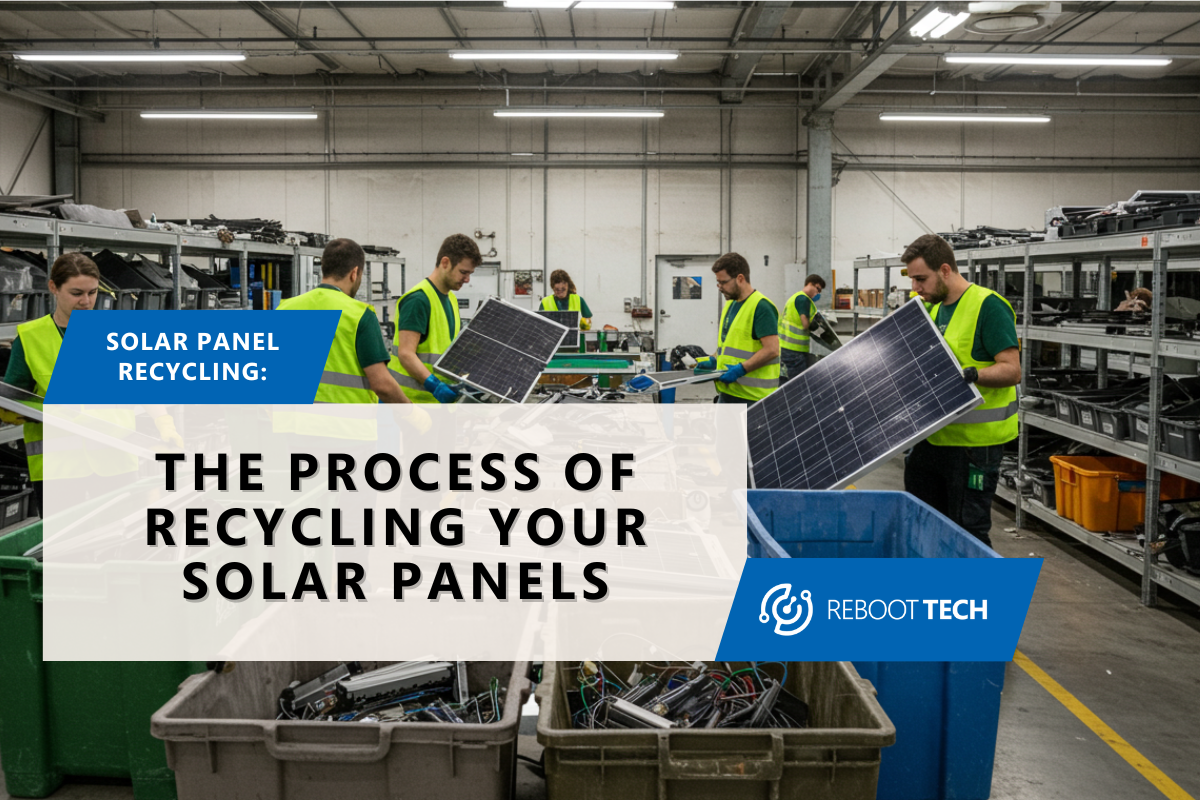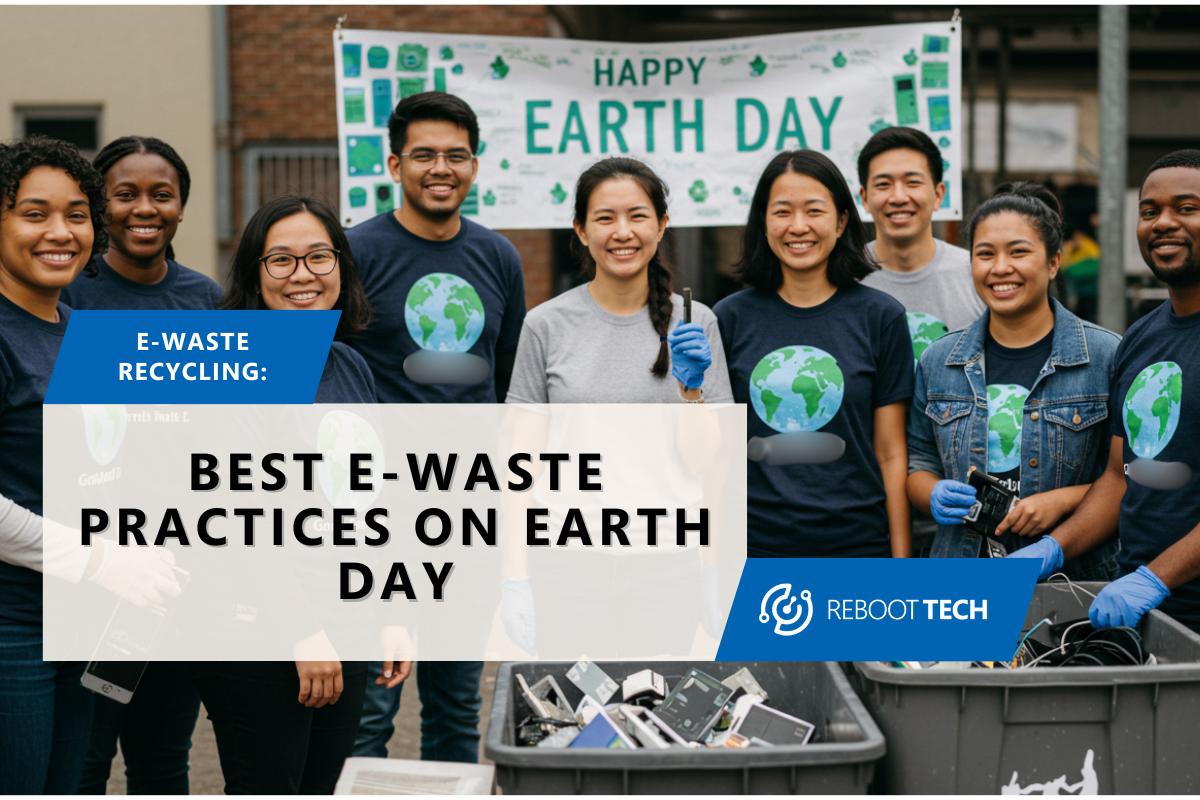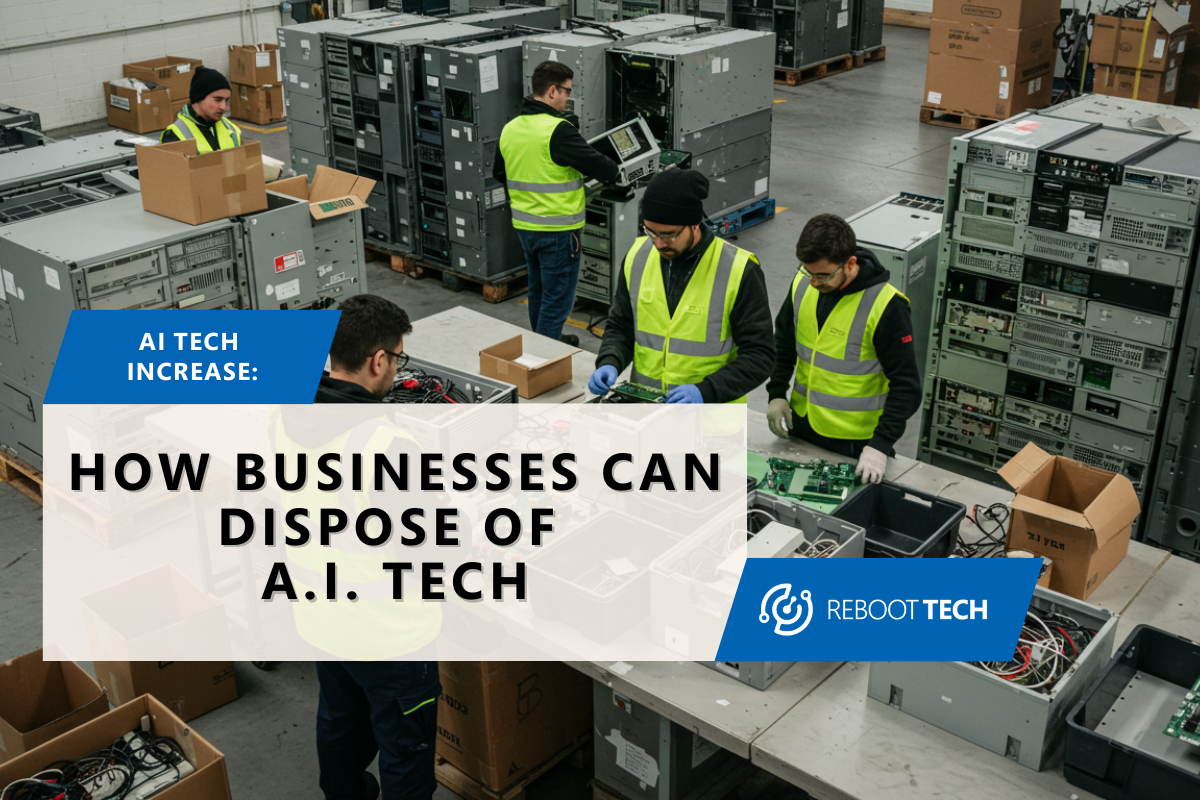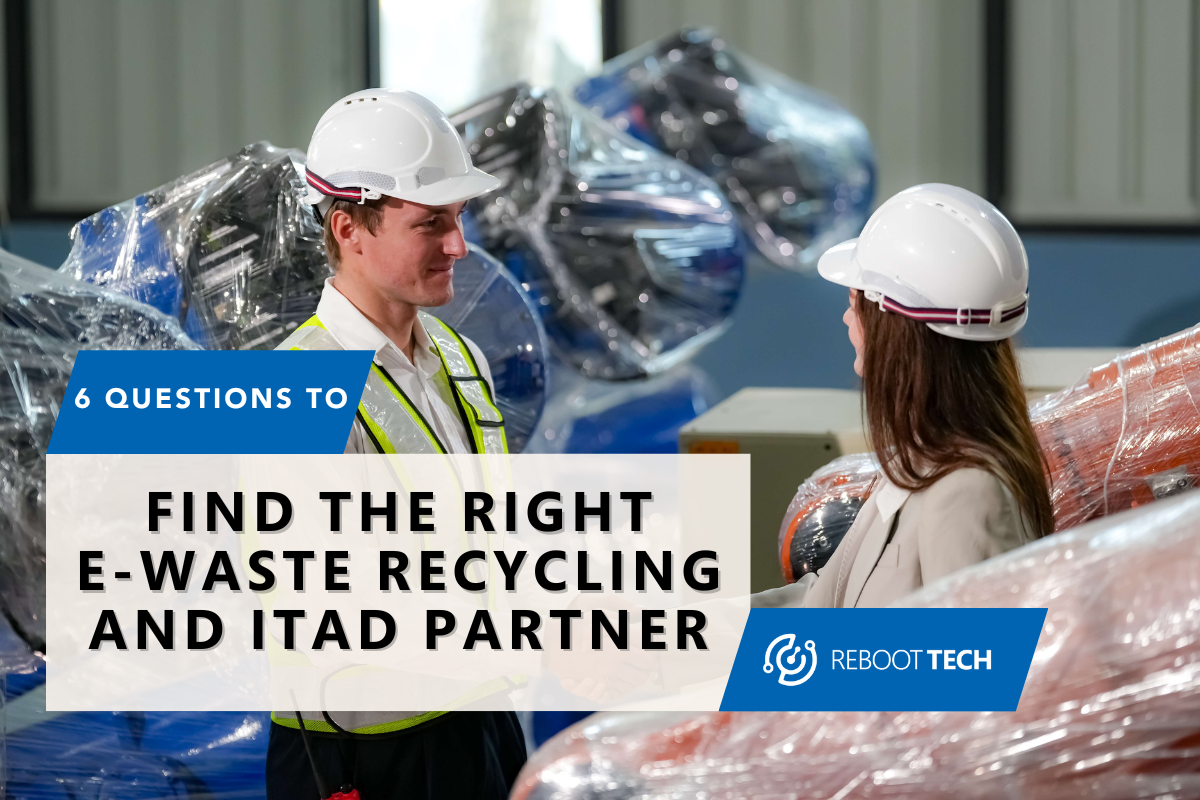
6 Questions To Find the Right E-Waste Recycling and ITAD Partner For You
Selecting the right IT Asset Disposition (ITAD) and E-Waste recycler can be challenging. But we must take the time to find the right one, so we can protect our data, stay up-to-date with regulations, and keep our environment safe. In today’s world, where technology is involved in everything we do, recycling our old electronic devices and keeping our data secure is crucial.
We know it would seem easier to look up “local ITAD partner” and click the first one you see on Google, or find the cheapest partner, but it’s worth your time to do some basic research, ask the right questions, and find the right partner for you. In this blog, we’ll go over the importance of e-waste recycling and ITAD, and six questions to ask a potential partner.
Why E-Waste Recycling & ITAD is Important
E-waste recycling and ITAD are vital for several reasons. First off, it helps the environment out by making sure your old electronics don’t end up in landfills. Why is this important? Well, electronic waste (e-waste) contains several harmful chemicals and toxic materials such as Lead, Cadmium, and Mercury.
These toxic substances can leak into our soil and water, harming both the environment and human health. Second, proper e-waste disposal can make sure that we recover valuable materials to repurpose into new ones. The reason why so many companies are mining and extracting precious materials still is because they don’t have enough materials to make new electronics. But if we recycle our electronic products, manufacturing places can use them to make new ones.
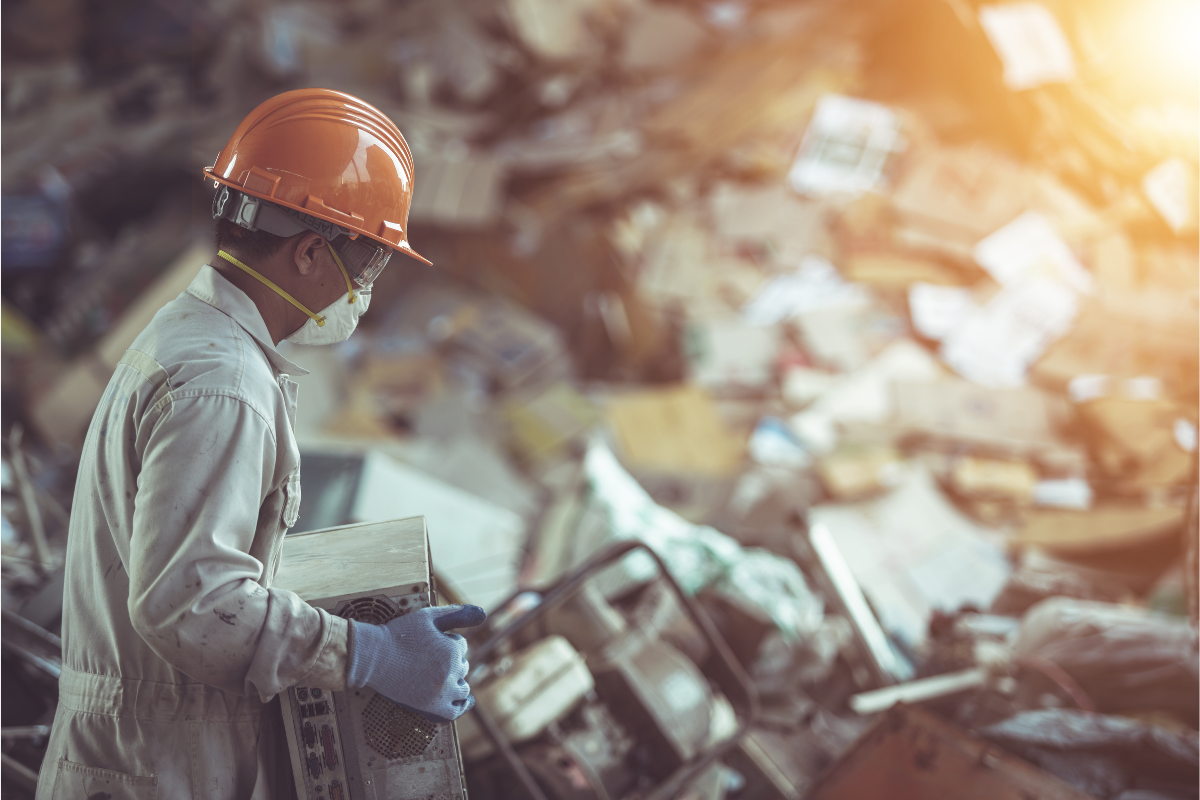
Additionally, ITAD plays a crucial role in data security by making sure your sensitive information stays protected when they’re recycled. For example, if your business is in the healthcare industry and you’re having an electronic surplus, you’d want to get rid of those devices! However, naturally, you’d be concerned about the sensitive information on them as they can have private data on patients for example. If that were to get accessed by hackers, the patients could sue you for not protecting their data.
Question 1: Certifications
The first question to ask potential partners is to see what certifications they hold to make sure they have safe practices in place. There are a few essential certifications to look out for. The first is the R2v3 Certification. This means that the company practices safe and sustainable recycling according to Sustainable Electronics Recycling International (SERI).
The other ones to look out for are the various ISO certifications which show they are committed to responsible recycling practices. When looking out for these types of certifications, you can rest assured that the people you’re working with are credible.

Question 2: Data Security
Do you want to know a scary fact? Last year, there was a cyber attack every 39 seconds, which equates to over 2,200 attacks per day! Most people think this stops with some cyber security in place, but what happens when you get rid of your electronics? Some people think that hackers can’t go after that, but with specialized software, they can even access your deleted personal information.
This means you need to have your data wiped with special methods. Some of the ways you can have your data wiped are through degaussing, erasing, or wiping. The most effective though, is to have the e-waste physically shredded. This ensures that all that information is completely destroyed.
Each method caters to what you want or need for your electronics, so this comes with doing proper research as well. So, this makes this question a priority to ask your ITAD provider, so that you can keep your sensitive information safe.
Question 3: References
Requesting references from previous clients is an effective way to validate a potential partner’s track record and reputation in the industry. You can do this by speaking with their past clients and getting more insight into the business’s reliability, professionalism, and level of customer satisfaction.
Positive references to your potential partner can be quite reassuring, knowing that they have a good track record. This may seem like a bit of a hassle because you have to do more research, but it’s definitely worth it.
Question 4: Recycling Process
Next up is to understand your partner’s recycling process, which is essential so you can see that they stay compliant while making an environmental impact. Specifically, businesses should ask about their collection, transportation, buyback programs, dismantling, and material recovery.
When you work with a recycling partner, you have to trust them with your materials, which means their processes should be easily transparent to you as well. The recycling process, especially in ITAD, does not stop once you hand over your old devices. You want to be able to track your old devices until they have reached
By gaining insight into how the partner handles e-waste throughout the recycling process, businesses can assess their commitment to sustainability and environmental responsibility.
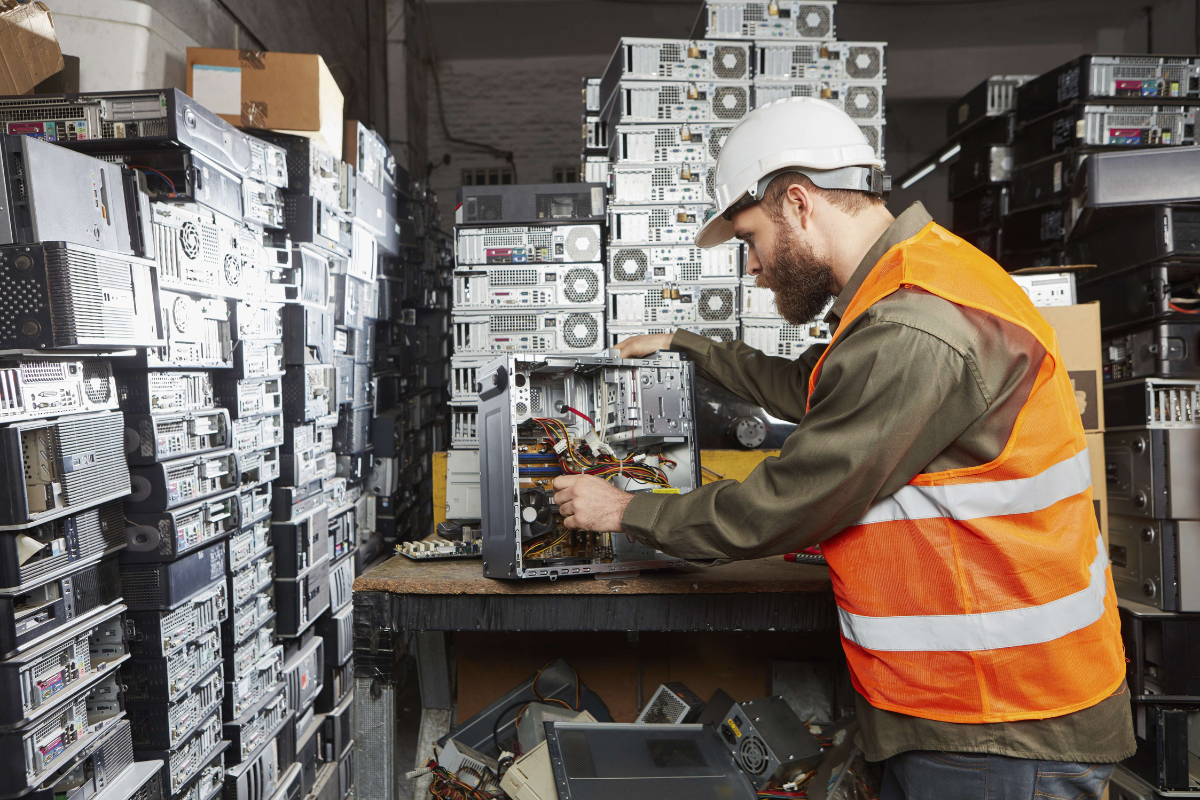
Question 5: Data Destruction
Inquiring about the partner’s data destruction procedures is crucial for safeguarding sensitive information and preventing data breaches. Businesses should ask about the methods used for data destruction, including certified data-wiping software and physical destruction methods.
By understanding how the partner ensures data destruction, businesses can ensure that their confidential information is securely erased and protected from unauthorized access.
Question 6: Environmental Regulations
Now, we briefly mentioned this before, but making sure both your business and your partner are keeping up to date with environmental regulations is important. Again, you check if your partner is up to date with this by seeing if they have the correct certifications and by checking their past clients for reference.
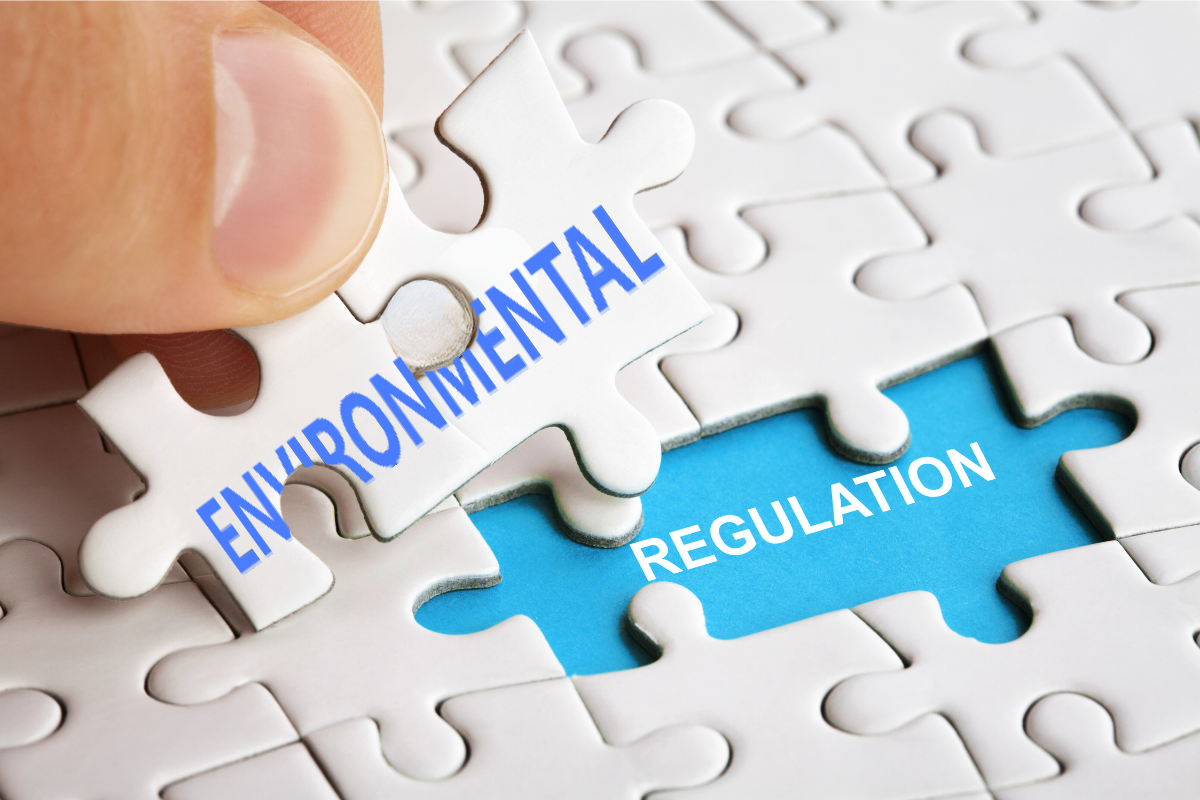
But definitely ask how your partner can specifically help you out with state regulations. Each state may have different mandates for recycling. For example, California’s Senate Bill 20 (SB-20) requires certain standards that may differ from other states. Be sure to ask your partner what they can do to keep you up to date while being environmentally friendly.
Choosing the Right One
Choosing the right electronics recycling and ITAD partner is essential for businesses looking to responsibly dispose of e-waste and protect sensitive data. By asking the six questions outlined in this guide, businesses can evaluate potential partners based on their certifications, data security measures, recycling processes, and track records.
Making an informed decision ensures that businesses partner with a reputable organization committed to ethical and sustainable practices in electronics recycling and ITAD.


